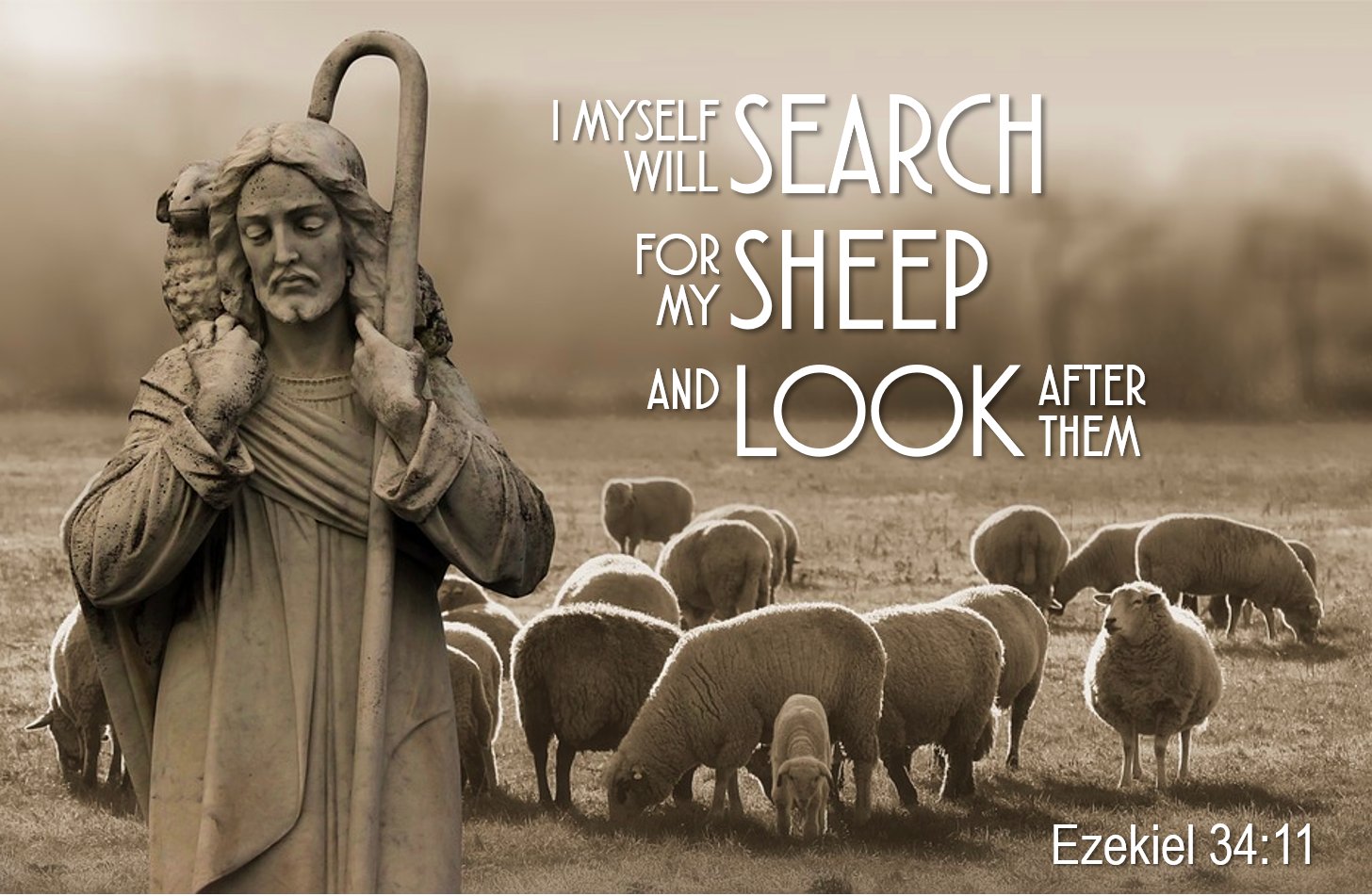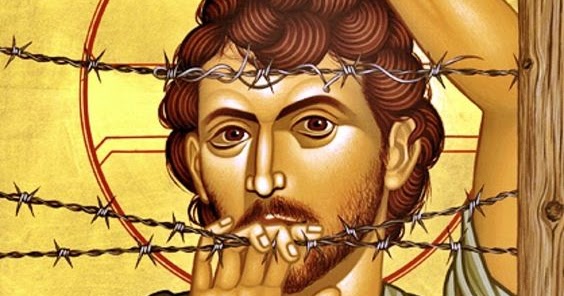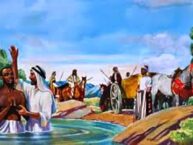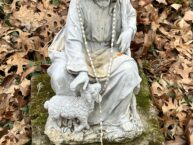 November 26, 2023: May God’s words be spoken, may God’s words be heard. Amen.
November 26, 2023: May God’s words be spoken, may God’s words be heard. Amen.
Well, welcome to the post-stuffing-our-face-not-gonna-get-on-a-scale-for-weeks season. I pray you all enjoyed Thanksgiving, and no, we didn’t turn off the heat so you could burn more calories sitting in the pews – but hey, that is the bright side I suppose of the heat situation today, right?
Today some in the church celebrate Christ the King Sunday, but we do not. Those who have been coming here for awhile know this already, but Christ the King is a feast day started by Pope Pius XI in 1925 to remind Christians that their allegiance was to their spiritual ruler in heaven as opposed to earthly governments and kingdoms. However, later other pontiffs would issue correctives to this feast day to ensure that believers remembered that Christ as King is not about power, but about humility, love, and serving others. You know something maybe shouldn’t have been done in the first place when you have to make corrections to it because it is going a bit south on you.
The thing is, Jesus escaped from the crowds that tried to crown him king, and king was also a title later ascribed to him by the Romans at his trial and crucifixion. And, despite the correctives, Christ the King Sunday can still, if we are not careful, skew the message of Christ as to what it means to follow him, which is why this fairly new liturgical addition is controversial, and why we don’t celebrate it here (and we are not alone in that regard).
Rather than an image of King, maybe we need to consider the image Jesus chose for himself – of a servant, of a shepherd of sheep. And it is those themes we hear about today in our lesson from Ezekiel and the gospel, so let’s take a look at those texts.
In Ezekiel, God says, “As shepherds seek out their flocks when they are among their scattered sheep, so I will seek out my sheep… I will seek the lost, and I will bring back the strayed, and I will bind up the injured, and I will strengthen the weak.”
Good so far, right? But wait, there’s more…God continues, ”but the fat and the strong I will destroy. I will feed them with justice…; and I will judge between sheep and sheep.”
In the parable Jesus told, which is very similar to the one from Ezekiel, in fact, it is essentially a twist on that same story, Jesus decided to add a new twist to it, adding goats –sorry goats, you’re the baaaaaaaaadddd guys.
Much of the time, when speaking about either of these texts – Ezekiel and Matthew – but, most especially the gospel, we humans can sometimes focus on judgment – the separation of goat and sheep – and the punishment of those goats. It is a great time for those who like to point fingers. But the deep truth of both scriptures this morning isn’t a call to judgement, but for a deep reflection on who we are, and on our role as a people of God. And we need only look more closely at the reading from Ezekiel to know what our role truly is.
God goes out to care for the lean sheep, the weakest ones, but it is God that also brings to judgment those who have been responsible for their condition. God says about those who do this, “Because you pushed with flank and shoulder, and butted at all the weak animals with your horns until you scattered them far and wide, I will save my flock, and they shall no longer be ravaged.” God is talking about all those who would abuse their might, who would abuse their power. But, God also makes it clear who will be the judge of that…God says, “I will judge between sheep and sheep.” God will take care of it – we don’t have to. And that’s a good thing, because we usually won’t get this judging thing right.
No God doesn’t want us to judge, but as shepherds, we are to stand up for those who are weak in the flock. See, this whole judgment thing, this whole reign of God, isn’t about power, well, not about our power anyway– but about standing up for those who have no voice. It is a clarion call to social justice in the name of our Creator, in the name of Jesus, our Savior.
So what exactly was Jesus saying then?
I think it goes to something Dorothy Day, the founder of the Catholic Worker Movement, and advocate for labor rights and social justice, once said: “Those who cannot see the face of Christ in the poor, are atheists indeed.” She is right, well, from a Christian perspective, but to see the face of God in every person, including when we look in the mirror, for we are, after all, made in the image of God – that is the identity Jesus was getting to here, and that was his concern.
Think about that – yes, we feed the hungry, clothe the naked, visit the imprisoned and sick, and welcome the stranger, or at least I hope we do, and none of it requires belief in Jesus or in God. But how would it change us to see in all those people the eyes of Jesus? Not that we are bringing Jesus to them, but we are meeting him in them! How would that change the world?
Can you imagine it?
Can you imagine thinking of the immigration debate as being about what to do with Jesus, who is undocumented in the United States?
undocumented in the United States?
Can you imagine thinking of the poverty of children as Jesus starving in his crib?
Can you imagine thinking of the gun violence crisis in America as valuing weapons over Jesus, killing Christ over and over again?
Can you imagine thinking of women and girls denied access to education, or used for sexual exploitation, as Jesus being shut out, abused, and told she is not good enough?
Can you imagine thinking of the fight for LGBTQ+ people as a fight for Jesus to have the right to live and love fully?
Can you imagine that?
Because if we can’t imagine that, we better take a look in the mirror again, because we might just be sporting a new goat like look. That is what Jesus is talking about here – the real identity of all people.
To be a shepherd in the model of God, in the model of Christ, we must care for the weak and stand firmly against the strong. Sadly, too often in our past, the church has been a part of the strong crowd. We have mistaken the reign of Christ as an earthly kingdom of worldly power, and whenever that has happened, we have effectively silenced our prophetic voice and the mission of Christ by our arrogance.
This is why Christ as a shepherd is a better model for the church than any title of King. And that is especially important for us to understand today.
For in our country there is a movement on the rise of Christian Nationalism – an oxymoron if ever there was one. What it really stands for isn’t the gospel of Jesus, but is just another name for bigotry and hatred. It is antithetical to all that Jesus taught and modeled for us. They are wolves in sheep’s clothing – beware always of those who view Christianity as a sign of power, rather than servitude.
So, how do we affirm Jesus as Lord, without equating faith in him with power? One commentator suggested that “…at the invitation to “proclaim the basic creed of the church,” we…stand and say words from today’s Gospel: “We believe in feeding the hungry. We believe in giving drink to the thirsty. We believe in welcoming the stranger. We believe in clothing the naked. We believe in visiting the imprisoned and the sick. We believe that Christ is in all persons, and we will love and serve them all in his name.” That’s a good start, but it is missing perhaps the most important creedal statement we can make, and it is this: “We believe that Jesus is found in the poor, the sick, the imprisoned, the stranger, the outcast, the oppressed, and in one another. We believe we are called to be shepherds, to love and to serve him in all people.”
Imagine for a moment the impression this would make on a visitor hearing that we stand for what Jesus stood for… for that matter – how would it affect us?
Because the truth is, we made that vow in our baptism, or it was made on our behalf and confirmed later. For we committed to “seeking and serving Christ in all persons, loving our neighbor as our self” And that we will “strive for justice and peace among all people, and respect the dignity of every human being.”
Our Presiding Bishop, the Most Rev. Michael Curry, put it this way: “God came among us in the person of Jesus to start a movement. A movement to change the face of the earth. A movement to change us who dwell upon the earth. A movement to change the creation from the nightmare that is often made of it into the dream that God intends for it…”
This is most certainly an Advent message for us all, as we await the birth of Christ, who came to us in humble means.
So let us focus on the image of our God as a shepherd on a relentless search for those pushed aside, speaking truth to power, and gathering in the weakest.
Let us prepare for Jesus by welcoming him in the stranger, the poor, the outcast, the hungry, the imprisoned, and the sick.
Then we will hear Christ say to us “Come, you that are blessed of God, inherit the kingdom prepared for you from the foundation of the world.”
Amen.
For the audio, click below, or subscribe to our iTunes Sermon Podcast by clicking here (also available on Audible):
The Rev. Diana L. Wilcox
Christ Church in Bloomfield & Glen Ridge
November 29, 2023
Advent 3
1st Reading – Ezekiel 34:11-16, 20-24
Psalm 100
2nd Reading – Ephesians 1:15-23
Gospel – Matthew 25:31-46






